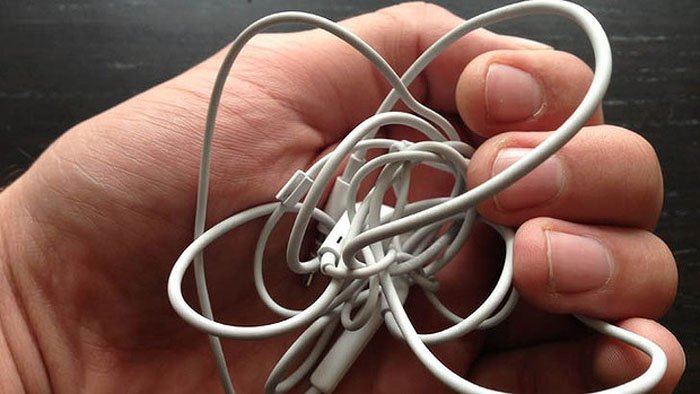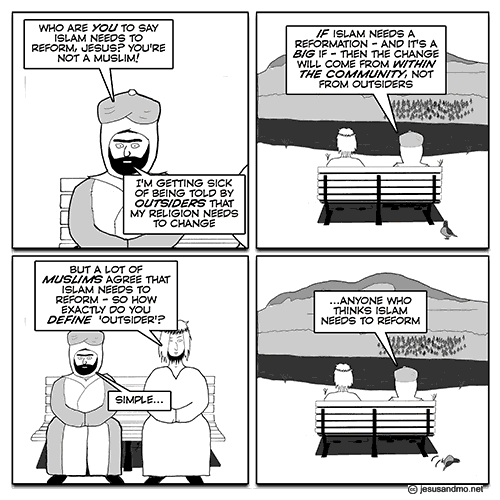Asra Nomani and Hala Arafa say thanks but no thanks to the whole “wearing ‘hijab’ in solidarity” thing – not for the familiar and irritating reason that it’s “appropriation” but for the much better reason that it’s sexist shit.
Last week, three female religious leaders – a Jewish rabbi, an Episcopal vicar and a Unitarian reverend – and a male imam, or Muslim prayer leader, walked into the sacred space in front of the ornately-tiled minbar, or pulpit, at the Khadeeja Islamic Center in West Valley City, Utah, the women smiling widely, their hair covered with swaths of bright scarves, to support “Wear a Hijab” day.
The media obligingly reported this interfaith gesture.
For us, as mainstream Muslim women, born in Egypt and India, the spectacle at the mosque was a painful joke and reminder of the well-financed effort by conservatives to dominate modern Muslim societies. This modern-day movement spreads an ideology of political Islam, called “Islamism,” enlisting unsuspecting well-intentioned do-gooders, while promoting the headscarf for women as a virtual “sixth pillar” of Islam, after the traditional “five pillars,” the shahada (or proclamation of faith), prayer, fasting, charity and pilgrimage. We reject this interpretation. We are not too sexy for our hair.
It’s been grating on me for ages, the way the media and would-be progressives beam approval on the headscarf for women, as if it stood purely for mutual love and respect and not at all for the subordination of women.
This modern-day movement, codified by Iran, Saudi Arabia, Taliban Afghanistan and the Islamic State, has erroneously made the Arabic word hijab synonymous with “headscarf,” furthering a sexist interpretation of Islam that women and girls must “protect” their “honor” by covering their hair. Hijab literally means, “curtain” in Arabic. It also means “hiding,” ”obstructing” and “isolating” someone or something. It is never used in the Koran to mean headscarf.
I did not know that. I’ve been calling it hijab all this time. Damn.
Born in the 1960s into conservative but open-minded families (Hala in Egypt and Asra in India), we grew up without an edict that we had to cover our hair. But, starting in the 1980s, following the 1979 Iranian revolution of the minority Shia sect and the rise of well-funded Saudi clerics from the majority Sunni sect, we have experienced bullying to cover our hair from men and boys – and women and girls, who are sometimes called “enforce-hers” and “Muslim mean girls,” for example, telling jokes about “hijabis” in skinny jeans actually being “ho-jabis,” using the indelicate term for “whores.”
…
To us, the headscarf is a symbol of an interpretation of Islam we reject that believes that women are a sexual distraction to men, who are weak, and, thus, we must cover ourselves. We don’t buy it. This ideology promotes a social attitude that absolves men of sexually harassing women and puts the onus on the victim to protect herself by covering up.
And treats her like so much garbage if she doesn’t cover up.
Unfortunately, the idea of “hijab” as a mandatory headscarf for women, duping well-intentioned “interfaith” supporters, is promulgated by efforts such as “World Hijab Day,” started in 2013 by Nazma Khan, the Bangladeshi American owner of a Brooklyn-based headscarf company, and Ahlul Bayt, a Shia proselytizing TV station, that the University of Calgary, in southwest Canada, promotes as a resource for its participation in “World Hijab Day,” the TV station arguing “hijab” is necessary for women to avoid “unwanted attention.” World Hijab Day, Ahlul Bayt and the University of Calgary didn’t respond to requests for comment.
Yikes. Bad move, University of Calgary.
In its “resources,” Ahluly Bayt includes a link to the notion that “the woman is awrah,” or forbidden, an idea that leads to the confinement, subordination, silencing and subjugation of women’s voices and presence in public society. It also includes an article, “The top 10 excuses of Muslim women who don’t wear hijab and their obvious weaknesses,” with the argument, “Get on the train of repentance, my sister, before it passes by your station.”
Also, the notion that “the woman is awrah” presupposes that the only people who count as people are men. The woman is forbidden to men, and therefore she’s just plain forbidden, because only men count. Since only men count, the way to deal with these forbidden women is to imprison them. Problem solved…as long as you assume women don’t count as people.
The rush to cover women’s hair has reached a fever pitch with ultraconservative websites and organizations pushing this interpretation, such as VirtualMosque.com and Al-Islam.org, which even published a feature, “Hijab Jokes,” mocking Muslim women who don’t cover their hair “Islamically.”
Last week, high school girls at Vernon Hills High School, outside Chicago, wore headscarves for an activity, “Walk a Mile in Her Hijab,” sponsored by the school’s conservative Muslim Students Association. It disturbed us to see the image of the girls in scarves.
These things always disturb me. They just send the message that Muslim women and girls are expected to wear the damn curtains.
As Americans, we believe in freedom of religion. But we need to clarify to those in universities, the media and discussion forums that in exploring the “hijab,” they are not exploring Islam, but rather the ideology of political Islam as practiced by the mullahs, or clerics, of Iran and Saudi Arabia, the Taliban in Afghanistan and the Islamic State.
In the name of “interfaith,” well-intentioned Americans are getting duped by the agenda of Muslims who argue that a woman’s honor lies in her “chastity,” pushing a platform to put a headscarf on every woman.
Please do this instead: Do not wear a headscarf in “solidarity” with the ideology that most silences us, equating our bodies with “honor.” Stand with us instead with moral courage against the ideology of Islamism that demands we cover our hair.
I do!





